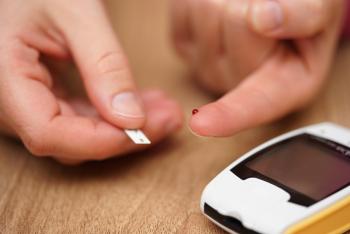Kidney disease is a leading cause of death in the United States, but it often has no symptoms in its...
Read More
Kidney stones are nothing to kid about—they’re unpleasant, painful and can take weeks to exit your body. Although approximately one in 10 people will get a kidney stone at some point, this condition is preventable and treatable.
Here’s what you need to know about what causes kidney stones, their risk factors and your options for treating this condition.
“A kidney stone is a solid mass of minerals and acid salts that form in the kidneys and can affect any part of your urinary system,” said Krystal Green, M.D., a physician at Inspira Medical Group Primary Care. “These masses range in size, but even small kidney stones can cause extreme pain as they exit the body through the urinary tract.”
A kidney stone can be in your body for years, and it doesn't typically become painful until it starts moving out of the kidneys. Kidney stones range in size—from as tiny as a grain of sand to the diameter of a golf ball—but most of them are about the size of a chickpea and can pass on their own. Larger kidney stones can get trapped in the ureter, the tube that connects your kidney to your bladder, and may require surgical removal.
There are four main types of kidney stones:
Knowing what type of kidney stone you have can help your doctor determine the best treatment approach and help you prevent future stones from forming.
“The most common cause of kidney stones is a lack of water in the body,” said Dr. Green. “When your body doesn't have enough water to dilute your urine, minerals and other substances in the urine can crystallize to form kidney stones.”
Other causes include a diet high in salt, sugar and animal protein. Some medical conditions, including hyperparathyroidism and inflammatory bowel disease (IBS), can also increase the risk of developing kidney stones. Family history, obesity and certain medications can also increase your risk of developing this condition.
Kidney stone symptoms can vary depending on the size and location of the stone. Small stones may not cause noticeable symptoms, but larger stones can result in extreme pain and discomfort. The most common signs and symptoms of kidney stones include:
Talk to your doctor right away if you experience any of these symptoms. They can perform tests to diagnose your condition and get you on the path to recovery.
Kidney stones sometimes cause complications like UTIs or blockages in the urinary tract. If you experience difficulty or severe pain when trying to empty your bladder, seek emergency care immediately.
“The most important thing you can do to prevent kidney stones from forming is to drink plenty of water, which will help dilute your urine and prevent minerals from crystallizing,” said Dr. Green. “Avoid foods high in salt and sugar and focus on eating a well-rounded diet rich in fruits, vegetables and whole grains.”
If you have kidney stones, your doctor may recommend a treatment plan based on your condition. Smaller masses may be able to pass on their own with the help of pain medication and plenty of fluids. For larger stones, treatment options may include:
Your treatment plan will depend on the size, type and location of your kidney stones as well as your overall health and personal preferences. Talk to your doctor about the best treatment plan for you.
Although kidney stones are a temporary condition, there is a risk of recurrence. Schedule an appointment with an Inspira urologist to treat kidney stones and explore ways to prevent them in the future.

Kidney disease is a leading cause of death in the United States, but it often has no symptoms in its...
Read More
Discover how high blood sugar impacts your body, from dental complications to kidney damage, and...
Read More
Inspira Health strives to make health care as simple and effective as possible. That is why Inspira...
Read More
The material set forth in this site in no way seeks to diagnose or treat illness or to serve as a substitute for professional medical care. Please speak with your health care provider if you have a health concern or if you are considering adopting any exercise program or dietary guidelines. For permission to reprint any portion of this website or to be removed from a notification list, please contact us at (856) 537-6772